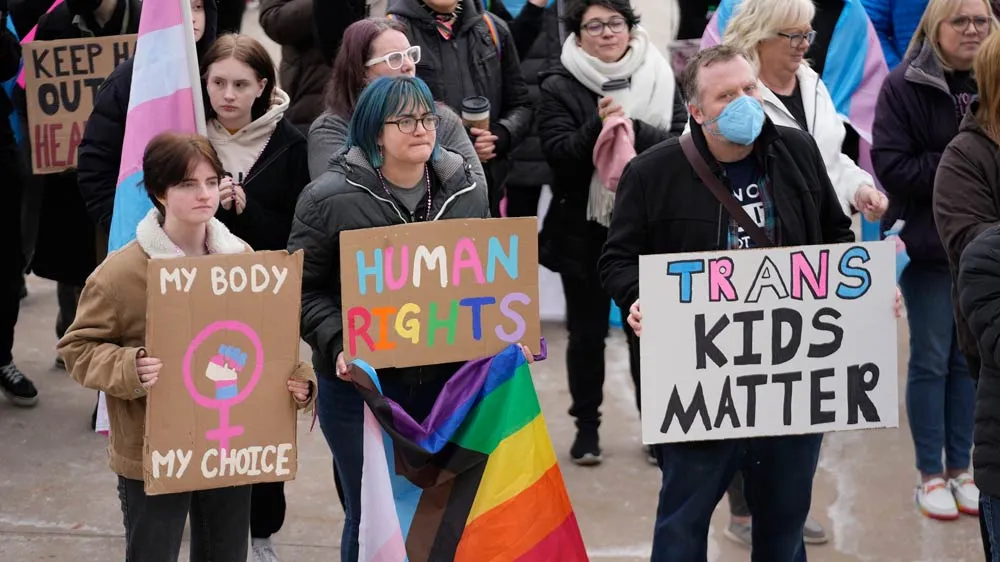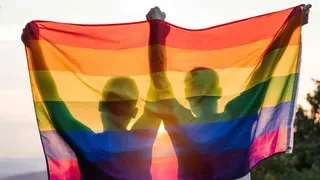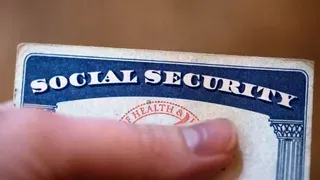November 24, 2012
How Gay Marriage Won at the Ballot Box
Chris Sosa READ TIME: 5 MIN.
One of the strongest arguments opponents have used against gay marriage has been that the issue never won at the ballot box.
On 32 different occasions, voters have rejected the concept of gay marriage.
That argument was blown out of the water, four times over, this year with big pro-marriage wins in Maine, Maryland, Minnesota and Washington.
But it took a whole lot more than just casting a vote to win marriage equality in three states and hold back a constitutional ban in the fourth.
In fact, it took more than $37.5 million and 46,000 volunteers to achieve such a feat. In Minnesota alone, 27,000 people volunteered in the last week alone, making 900,000 phone calls and knocking on 400,000 doors.
"It was amazing," said Richard Carlbom, campaign manager for Minnesotans United for All Families. "We had 68,000 individuals invest in this campaign who donated money at least one time. That is unbelievable. That's a serious investment. And that doesn't count people who contributed less than 20 bucks. The fact is thousands and thousands invested in this campaign."
Carlbom said they raised more than $11 million while their opponents raised close to $3-4 million.
In Minnesota, though, gay marriage is still illegal.
"We're going to now determine what the next step in this conversation will be," he said. "First we want to celebrate the fact that we beat this amendment."
Unlike the other three states, Maine is the only one that had several years to get their message across to voters. In 2009, Maine was poised to become the first state to pass gay marriage legislatively with a governor's signature. Instead their opponents got it on the ballot and repealed the law.
This time around, instead of playing defense, they played offensive.
"We started from scratch in 2010. We decided to be proactive and take our time, instead of going through the courts. We developed a grass roots approach. We were setting the pace. We were the ones setting the timeline and we didn't know if we were going to bring it up in 2012 or 2020," said Matt McTighe, campaign manager for Mainers United for Marriage. "Whenever we felt like the approach was working we'd bring it up. The last 2-and-a-half-years have been hard work and we've used a sophisticated strategy."
This time around, McTighe said it was all about changing minds one voter at a time.
"Our whole entire approach was different. We took a door-to-door approach. We built a sizable infrastructure and taught our volunteers how to have really in-depth, one-on-one conversations with voters," he said.
The campaign contacted 250,000 people through phone calls and door knocks. They had more than 6,000 volunteers and raised more than $8 million.
Their biggest challenge?
"Gay marriage had never won before. Our opponents had a playbook they had successfully used 32 times. That's why we put a considerable amount into research and well thought out testing, to create and execute a game plan. We used the most sophisticated voter modeling known to man," he said.
But unlike the other states they also had a considerable time advantage.
"We had some great partners to try new things. We had so much time to work out any of the kinks in the system and really hone the strategy," he said.
The other two states, Maryland and Washington, took similar paths this past year with both state legislatures voting for gay marriage and then opponents getting it on the ballot where they had to defend it.
In Maryland, they focused a lot of their outreach on African Americans.
"We nearly split the vote in the African American community. That's a huge milestone. We had the sense that African Americans were not willing to vote for marriage equality so we put a lot of time and effort into getting the message out and it paid off," said Josh Levin, Campaign Manager for Marylanders for Marriage Equality.
It also helped that the NAACP is based in Baltimore and earlier this year they endorsed marriage equality.
"Our partnership with them was tremendous. I can't say enough about them," he said.
The campaign also focused a lot of their effort on people of faith.
"We won the support of the Presbyterians and other mainline Christian denominations," he said. "We helped religious people realize this was about religious freedom. We did a great job making sure it was crystal clear this is about civil marriage and not religious marriage."
Their outreach paid off in some unlikely places, Levin noted.
"We were especially happy to see the margins we go in our much more Republican counties and we even won some traditional republican strongholds."
Like the other states, the Washington campaign focused on recruiting volunteers and getting their message out to voters. They had 7,000 people volunteer just in the last 72 hours before the election.
"We had an extraordinary volunteer effort," said Zach Silk, campaign manager for
Washington United for Marriage. "It was one of the largest volunteer efforts in Washington State ballot measure history."
In the last 10 days before the election the campaign was making 100,000 phone calls a night.
Additionally, the campaign raised more than $11 million, which included some big name donors like Amazon CEO Jeff Bezos and former CEO of Microsoft Bill Gates who gave $2.5 million and $600,000 respectively.
But it was the small donors that really surprised Silk. More than 26,000 individuals donated to the campaign.
"The community response here in Washington State was amazing," he said. "All of the largest corporations in the state endorsed the campaign for the first time including Amazon, Starbucks and Microsoft. We also had strong support from the music community."
But besides the money, big names, and community Silk said ultimately they just "ran a better campaign."
"We hired campaign professionals. People with strong campaign experience," he said. "We learned how to defeat our opposition by studying their playbook very carefully. We found weaknesses in their execution and ultimately defeated them."
Massive is the word Silk used over and over again to describe his organization's campaign.
"The way you win these things, you have to run a massive campaign. We were running the largest operation in the state. We were as large as the governor's race, presidential race," he said. "It was a full-scale campaign. When you're up against opposition with such a successful track record you have to marshal enormous resources to make this happen."
But it certainly didn't hurt that President Obama had come to publicly support marriage equality earlier in the year and then endorsed the marriage equality campaigns in Maine, Maryland and Washington.
"What was so compelling is that the president ran not away from, but on his support for the freedom to marry," said Evan Wolfson, Founder and President of Freedom to Marry. "We took away the last talking point of the opposition: That as a minority we could never win the vote of the majority."
Wolfson noted that each time gay marriage proponents achieve a milestone, their opponents keep moving the goal post.
"First they said the American people would never put gay and marriage in the same sentence," he said. "They said we'd never get a court to legalize it, never get a legislature to pass it. They said we'd only win on the coasts and then we won in Iowa. Each step of the way they keep moving the goal post. All they can do is try to throw money and scare tactics to block our momentum."
And finally the last goal post was that gay marriage would never win at the ballot box.
"The last barrier we needed to overcome is to win an up or down vote," he said. "The election was a complete triumph and irrefutable momentum for freedom to marry."
What's next?
Wolfson said that looking to the future there may be more battles ahead in Rhode Island, Illinois, Oregon and possibly several states in between.
Finally he said: "We already have several states laying the groundwork."






